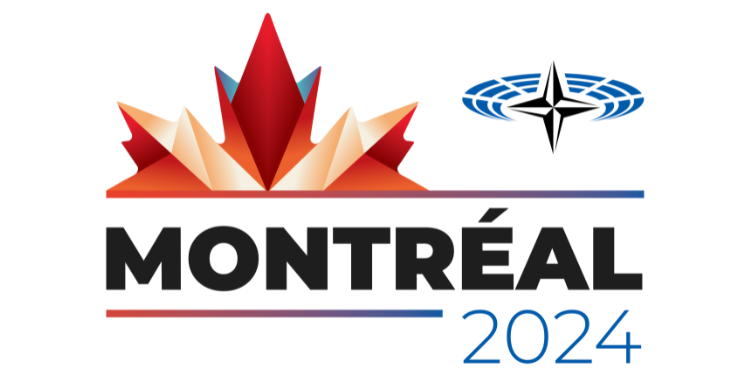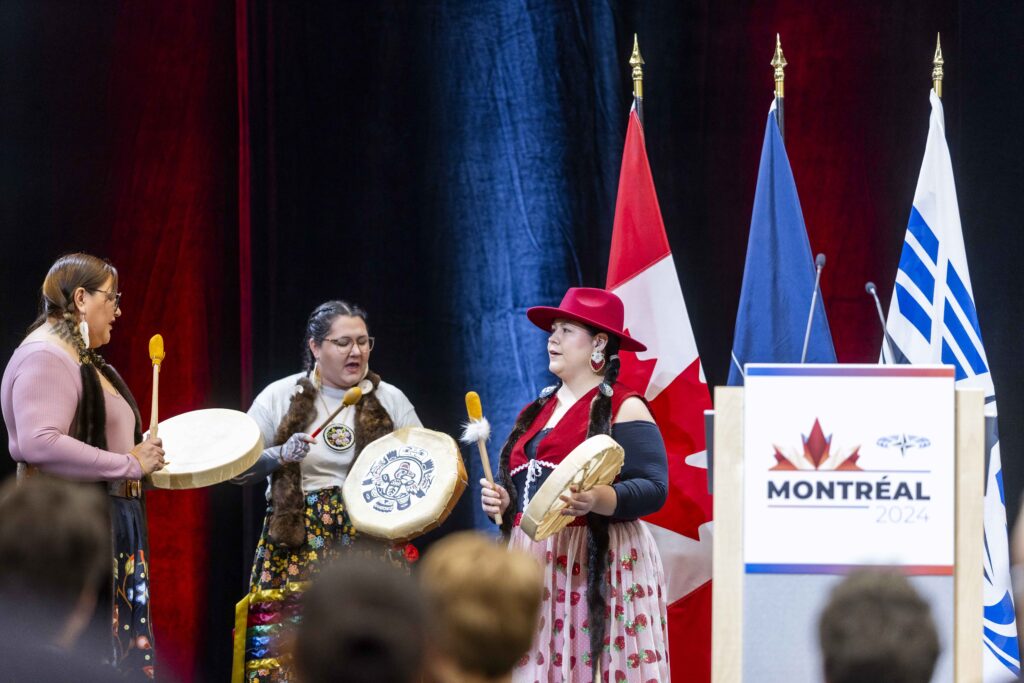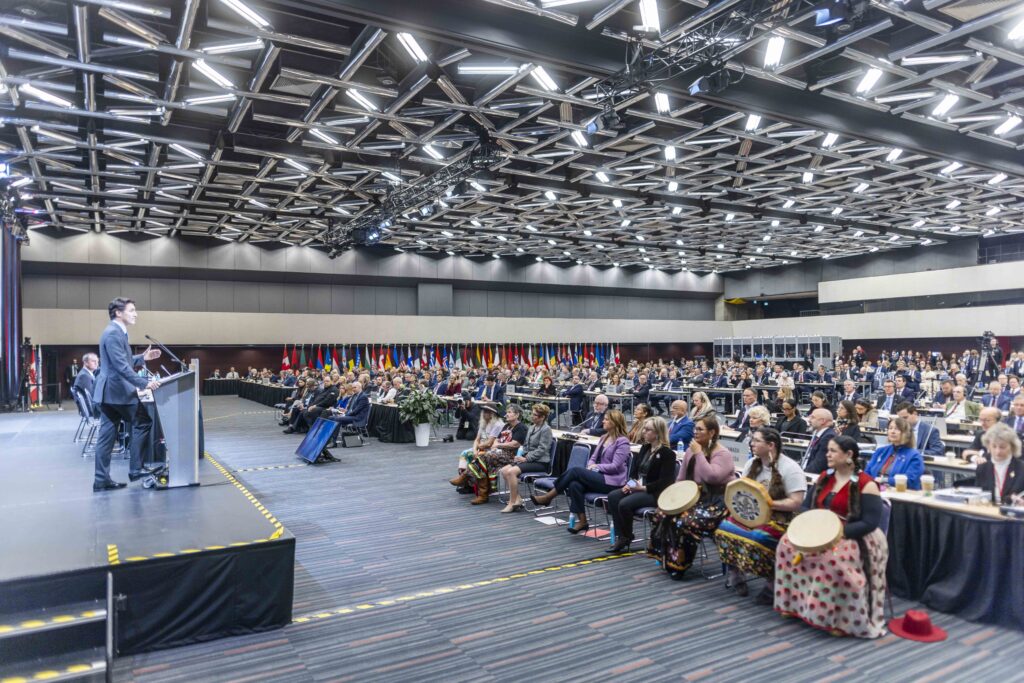70th NATO Parliamentary Assembly Annual Session in Montreal: A Unified Response to Global Challenges
Addressing Global Security Concerns
The NATO Parliamentary Assembly (NATO PA) held its 70th Annual Session in Montreal, Canada, from November 22 to 25, 2024. Hosted by the Parliament of Canada, the event brought together over 260 parliamentarians from NATO member and partner countries. The session served as a critical platform to discuss pressing global security challenges, reaffirm collective defence commitments, and uphold democratic values.
The session’s agenda addressed a wide array of security concerns, highlighting the need for robust transatlantic cooperation. Delegates reiterated their unwavering support for Ukraine amidst its ongoing conflict with Russia, emphasizing sustained assistance to defend Ukraine’s sovereignty and territorial integrity. The Assembly also examined NATO’s adaptation to emerging threats, particularly from authoritarian regimes, stressing the importance of a united and proactive response. Discussions on the implications of artificial intelligence and other technological advancements underscored NATO’s commitment to innovation and readiness for future threats. Additionally, security dynamics in regions such as the Western Balkans, the Black Sea, and the Arctic were analysed, with calls for enhanced vigilance and cooperation to address vulnerabilities.
Key Resolutions and Initiatives
Among the significant resolutions adopted, the Assembly urged a more strategic and unified approach to counter Russian hostility. This included a call for increased military support to Ukraine, alongside economic and humanitarian aid, as part of a broader effort to counteract Russian aggression. A resolution emphasized the need to supply Ukraine with vital weapons to shift the tide of the war, ensuring it has the necessary resources to repel attacks and regain occupied territories. The resolution also focused on enhancing NATO’s deterrence and defence posture on its eastern flank and addressing hybrid threats such as cyberattacks and disinformation campaigns. Moreover, it highlighted the importance of safeguarding democratic institutions from external destabilizing influences.
The Assembly further emphasized the need to establish a NATO Centre for Democratic Resilience. This initiative aims to strengthen the Alliance’s commitment to democratic principles, ensuring member and partner states have the tools to counter authoritarian influence and protect their institutions. Additionally, there was a strong focus on enhancing NATO’s technological edge, which is critical for addressing emerging threats and ensuring the Alliance remains at the forefront of global security innovation.
Collaboration and Leadership
As part of NATO PA’s commitment to fostering cooperation with other institutions, the Assembly welcomed collaboration with the European Parliament. A joint meeting highlighted shared goals and the need for closer coordination on security policies, particularly in addressing common threats and reinforcing democratic values across the transatlantic region. The European Parliament delegation commended the Assembly’s focus on collective resilience and expressed support for deeper EU-NATO cooperation in addressing hybrid threats and energy security challenges.
Prominent officials addressed the Assembly, providing invaluable insights. Boris Ruge, NATO’s Acting Deputy Secretary General, discussed the Alliance’s strategic direction. Ruslan Stefanchuk, Chairman of Ukraine’s Parliament, shared perspectives on Ukraine’s challenges and aspirations. Sviatlana Tsikhanouskaya, National Leader of Belarus, highlighted the democratic movement in Belarus and regional security concerns.
The Assembly also saw the election of Marcos Perestrello, a Portuguese parliamentarian and member of Portugal’s Socialist Party, as its new President. Perestrello, who has been actively involved in the NATO PA since 2020, previously served as Chair of the Sub-Committee on NATO Partnerships and as Vice-President. His election reflects the Assembly’s commitment to addressing global security challenges and upholding democratic values under a unified leadership.
Canada’s Role and Public Reactions
Canada, as the host nation, underscored its commitment to NATO through several initiatives. Canadian officials reaffirmed the country’s pledge to meet NATO’s 2% GDP defence spending target by 2032, with efforts to accelerate this timeline. However, this commitment drew scrutiny from international observers, including U.S. Representative Mike Turner, who criticized Canada’s “arrogance” on defence spending. Canada’s leadership of the multinational battlegroup in Latvia exemplifies its contribution to NATO’s deterrence and defence posture.
The session coincided with large-scale protests in Montreal, where demonstrators voiced opposition to NATO’s policies. While most protests were peaceful, some escalated into violence, leading to property damage and arrests. Canadian Prime Minister Justin Trudeau condemned the violence and antisemitic incidents observed during the protests, reaffirming the government’s commitment to the Alliance. According to the Associated Press, these incidents sparked debates on NATO’s role and public perception, showcasing the challenges of aligning national interests with international commitments.
The 70th Annual Session of the NATO Parliamentary Assembly in Montreal reinforced the Alliance’s unity and adaptability in addressing contemporary security challenges. By adopting strategic resolutions and fostering open dialogue, NATO PA reaffirmed its dedication to safeguarding democratic values and enhancing global security. As geopolitical dynamics continue to evolve, the Assembly’s outcomes underline the enduring importance of transatlantic solidarity and collective action.



